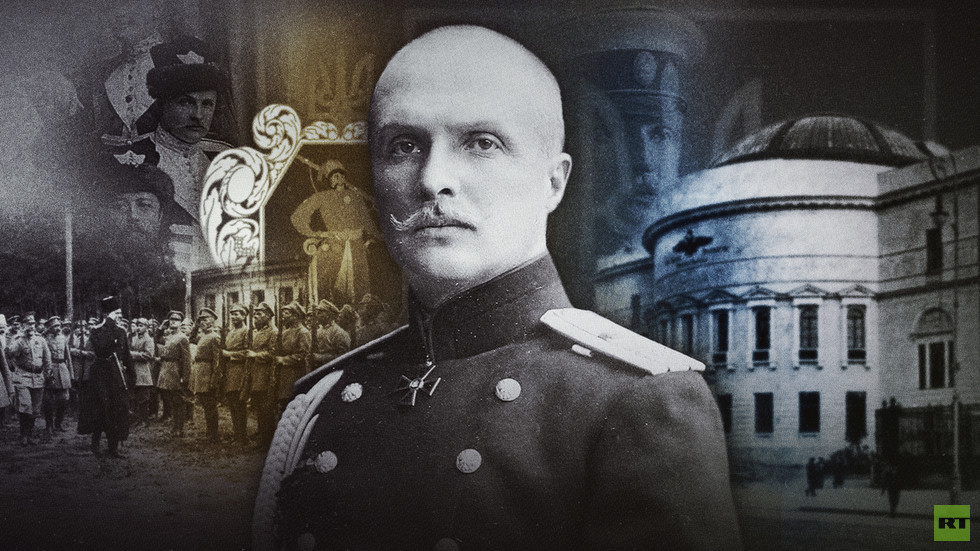
The aristocrat Pavel Skoropadsky founded the Cossack Hetmanate and became a hero in Kiev

© RT
Some of the most extraordinary stories surface during revolutionary times. After the collapse of the Russian Empire, Pavel Skoropadsky – a brilliant general and aide-de-camp of the last Russian emperor – suddenly remembered his roots and founded the Cossack Hetmanate on the territory of modern Ukraine, going down in history as one of the symbols of the country’s independence.
RT explores how the revolution turned a tsarist general into a costumed Cossack, the role starving Germans played in the story, and what an eyewitness to the events, the author Mikhail Bulgakov, had to say about Skoropadsky’s Hetmanate.
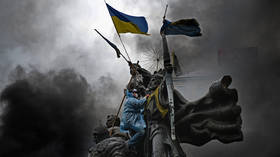
Read more
The burden of change
“One thing is certain: According to Kiev residents, there were 18 coups. Some fleeing memoirists counted 12; I can testify to 14 and saw ten of them with my own eyes.” This is how renowned author Mikhail Bulgakov described the 1917-1920 revolutionary events in Kiev. Similar events unfolded over the entire territory of the former Russian Empire. Chaos raged on the ruins of the fallen monarchy and sprouted new, bizarre forms of political life.
While the dual power of the centrist Provisional Government and the socialist Petrograd (the name for Saint Petersburg between 1914 and 1924) Soviet was established, representatives of the Ukrainian socialist and National Democratic parties in Kiev proclaimed the creation of the Ukrainian Central Rada (UCR). It positioned itself as a territorial body of the Provisional Government, albeit with national characteristics and claims. However, the Central Rada’s practical influence was rather limited – territorially, power was in the hands of various deputy councils made up of soldiers, workers, and peasants.
Historian Mikhail Grushevsky, who advocated the national-territorial autonomy of Ukraine, within the framework of a democratic Russia, with a further transition to a contractual federation, became chairman of the Rada. Radical politicians supporting Ukraine’s immediate independence were in the absolute minority. What united both moderates and radicals was a determination to carry out the fastest possible “Ukrainization.”
Ironically, 100 years ago, there weren’t that many Ukrainians in Ukraine.
The situation with the self-identification of local residents is described by General of the Ukrainian People’s Republic Yuriy Tyutyunnik. In April 1917, he arrived in Simferopol for the formation of combat units in the young republic. He gathered about 7,000 people – representatives of soldiers’ deputies assembled from natives of the Russian Empire’s Ukrainian provinces.
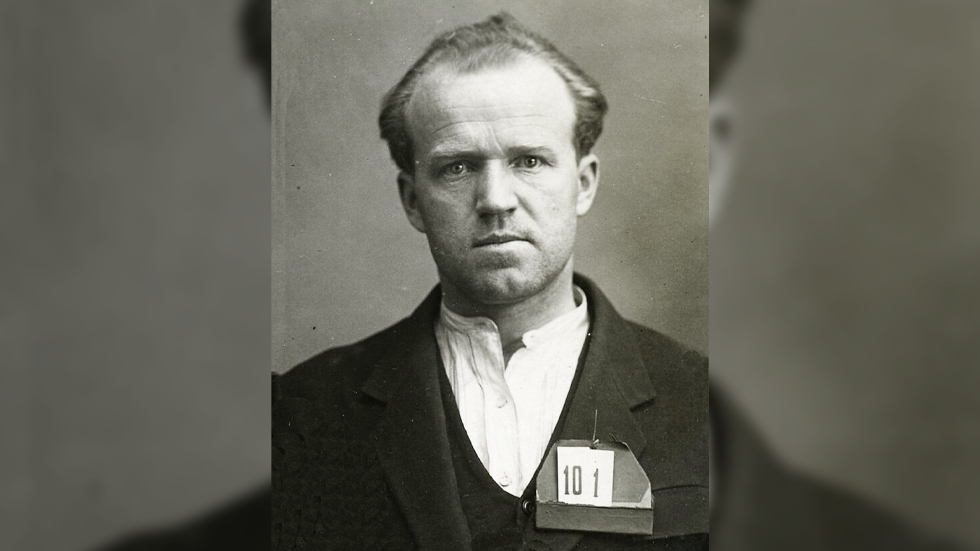
Yuriy Tyutyunnyk © Wikipedia
In his memoirs, Tyutyunnik described the start of the meeting. Looking at the recruits, he said: “Those of you who are Ukrainians, raise your hands!” Around 300 hands shot up. “Now, Malorussians [one of the historical ethnonyms of Ukrainians], raise your hands!” Almost half responded. “Now Khokhols [a colloquial nickname for Ukrainians], raise your hands!” This time, the remaining hands soared up. “And now Ukrainians, Malorussians, Khokhols, altogether!” he commanded, and the absolute majority raised their hands.
The Provisional Government was in two minds regarding the Ukrainian movement. On one hand, Petrograd feared the growing chaos and the threat of the country’s collapse. On the other, in the budding Ukrainian state and overall Ukrainization, they envisioned support against both radical revolutionaries like the Bolsheviks and the Russian monarchists and nationalists.
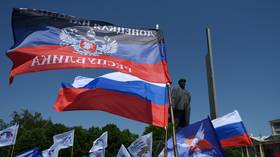
Read more
Therefore, in July 1917, the Provisional Government recognized the Central Rada and its executive body, the General Secretariat, as the supreme power in Ukraine. In turn, the Central Rada issued a resolution announcing that “it has always advocated against the separation of Ukraine from Russia.”
Russian political and public figure Vasily Shulgin wrote in The Kyivlyanin newspaper, “People who considered themselves Russians, who fought for Russia and shed blood for the Russian land, by the decision of the Provisional Government woke up as Ukrainians.” The rights of Russians in Ukraine ceased to exist back in 1917.
An end for some, a beginning for others
The turning point for the young Ukrainian state was the seizure of power by the Bolsheviks in November 1917. In response, the Central Rada proclaimed the creation of the Ukrainian People’s Republic (UPR). Though the actual power of the UPR was extremely limited and not all ministers even had a secondary education, the formation of the first Ukrainian state was an important milestone. The UPR wished to claim the entire territory of Ukraine as it eventually existed in 1991, including the Crimea, Donbass, Zaporozhye, and Kherson regions.
Technically, Vladimir Lenin’s people recognized the right of Ukraine to self-determination. Practically, they sought to dominate it. However, the Bolshevik uprising in Kiev in November-December 1917 ended in defeat. Their attempt to take power during the All-Ukrainian Congress of Soviets was also unsuccessful. So, the Reds moved troops into Ukraine.
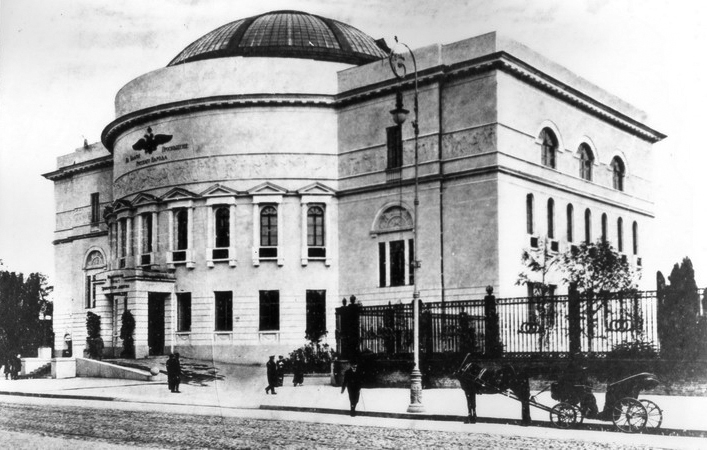
Pedagogical Museum named after Tsarevich Alexei 1909-1911, where the Ukrainian Central Rada worked. © Wikipedia
The time for discussions and parliamentary debates had passed. The viability of the young Ukrainian state was to be determined on the battlefield. Yet, as it turned out, the freshly Ukrainized army was debilitated and, with rare exceptions, almost no one took up arms to defend the future of Ukraine. With minimal resistance, the Bolsheviks captured Kharkov and then Kiev. The republic’s leadership fled to the West.
In February 1918, the fugitive government of the UPR signed a peace treaty with the Central Powers of World War I in Brest. Ukraine assumed obligations to supply food to Germany and Austria-Hungary, and in return, the latter recognized Ukrainian independence and promised to liberate Ukrainian lands from the Bolsheviks. Recognition of independence in exchange for food shouldn’t seem insignificant. At the end of the First World War, the Central Powers experienced a major shortage. Ukraine’s resources, practically unaffected by the war, were more than welcome.
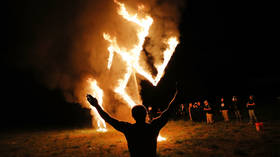
Read more
It took German and Austrian troops a month to recapture Kiev and most of Ukraine from the Bolsheviks. The government of the “formally independent” country returned on the heels of the German Imperial Army. The Germans cleared Kiev of beggars in a couple of days and spent another week getting rid of rampant bandits. And then, they turned on the “formally independent” UPR government.
The Central Rada and the UPR held a certain power over the region and were often represented by dubious (to put it mildly) people. For example, Alexander Osipov, an official in the Ukrainian Ministry of Internal Affairs, took his “duties” a bit too far. By order of the minister of internal affairs, the minister of war, and the prime minister, he orchestrated the kidnapping of the head of the Russian Bank of Foreign Trade and a member of the financial board of the Central Rada, Abram Dobry. In exchange for the banker’s release, he received 100,000 rubles in the interests of Ukrainian officials.
The crime would hardly have been surprising for the dark post-revolutionary times if not for one detail: the financial transactions of the German occupation troops went through Dobry’s bank. While the Germans were willing to tolerate the sloppiness of Ukrainian authorities and their inability to restore order, the kidnapping of a valued banker was the last straw.
On April 28, 1918, during a meeting of the Central Rada, a German patrol led by the Feldwebel (senior officer) entered the hall. He arrested those present and ended the existence of the Ukrainian People’s Republic. The next day, the new ruler of Ukraine was proclaimed. This was Cossack and aristocrat, aide-de-camp of the last Russian emperor and lieutenant general of the Russian Imperial Army, Pavel Skoropadsky.
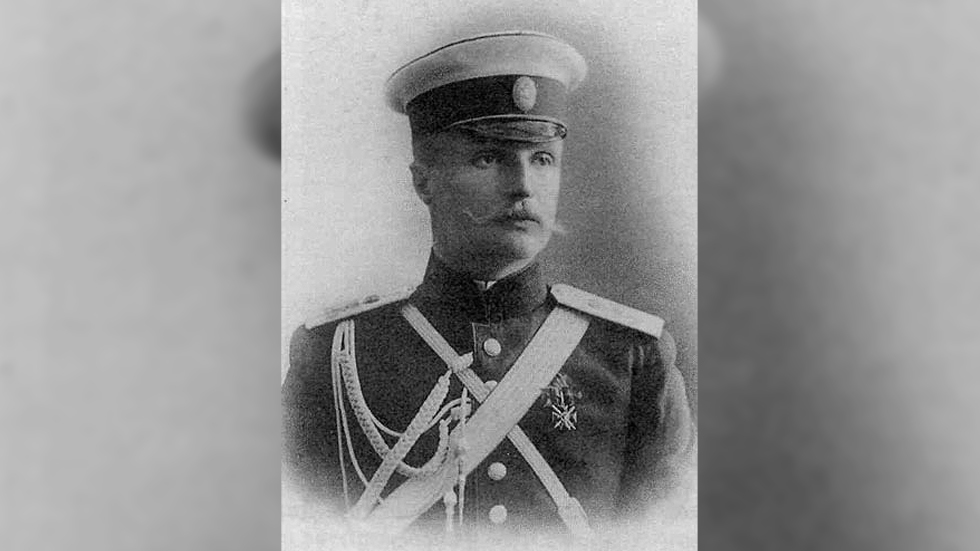
Pavel Skoropadsky (1906) © Wikipedia
“A genuine Russian”
Skoropadsky came from a typically imperial family. His distant ancestor, Ivan Skoropadsky, at the beginning of the 18th century was the hetman (the leader of the Cossacks) of the Zaporozhian Army. Since then, the whole family had faithfully served the Russian Empire. At the age of 13, he entered the Page Corps, an elite military academy for the sons of the nobility. This was followed by cavalry service, military honors in the Russo-Japanese War, and appointment as an aide-de-camp of the last Russian Emperor Nicholas II.
In the First World War, Skoropadsky was the commander of the Russian Imperial Guard Cavalry Regiment. Brave and loyal to the monarchy, he lacked opportunities for distinction in the era of machine guns, trenches, and barbed wire. During the revolution, Skoropadsky was the commander of the 34th Army Corps. After the June offensive organized by the Provisional Government, which was unsuccessful for the Russian Army, Supreme Commander-in-Chief Lavr Kornilov ordered the “Ukrainization” of the 34th Corps. Russian soldiers and officers were transferred to the 41st Corps and replaced with Ukrainians. The commanders hoped this would lead to a strengthening of morale and better combat capability.
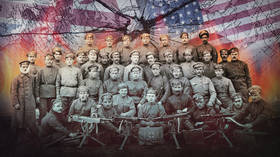
Read more
In reality, as Anton Denikin, one of the commanders of the White Army, described, the decision resulted not only in the further collapse of the army but also in the abuse and hatred of Russian soldiers and officers. At the same time, in a personal conversation, Skoropadsky told Denikin that he was “a genuine Russian, an imperial guard officer completely alien to the idea of independence; he is only fulfilling the assignment from his superiors, which he personally does not sympathize with.”
In 1917, Skoropadsky apparently lacked significant political ambitions. An aristocrat and one of the major landowners in Ukraine, he was wary of the Provisional Government and Central Rada’s socialist views. Skoropadsky’s election as General Ataman of the Free Cossacks was one of the few illustrious moments in his political career. At the beginning of the 20th century, dressing up as a Cossack was an oddity even by violent revolutionary standards.
Skoropadsky was the descendant of a Cossack hetman who lived 200 years earlier. This strengthened his authority in the eyes of the Ukrainians. Moreover, in contrast to the demagogues of the Central Rada, Skoropadsky had money, social influence, and combat experience – a solid foundation for power in revolutionary times.
Before the Bolsheviks’ offensive in Ukraine, Skoropadsky resigned, which saved his reputation during the fall of the Central Rada. After the UPR was returned to Kiev, Skoropadsky engaged in building ties with the Ukrainian elites and the leadership of the German and Austrian occupation forces. The latter were interested in the exportation of food from Ukraine, which the UPR leadership could not provide. Skoropadsky, on the other hand, relied on major landowners and could easily ensure German interests.
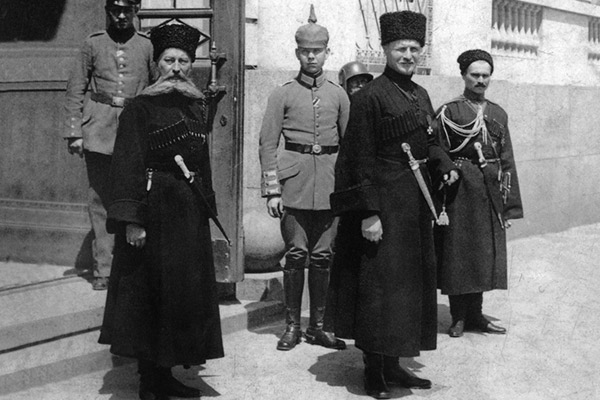
Pavel Skoropadsky (in the foreground on the right) and the Germans. 1918. © Wikipedia
Following the arrest of the Ukrainian People’s Republic’s leadership, Pavel Skoropadsky was proclaimed hetman of all Ukraine at the congress of grain growers, ironically held in the Kiev circus. Keeping in mind the mistakes of the self-willed Central Rada, the hetman decided to skip excessive democracy.
Dreams of the past
The political system of the new Ukrainian state established after the overthrow of the UPR may be best described as a “monarchical dictatorship.” The monarch (hetman) had absolute power. He appointed and dismissed ministers, issued laws, and supervised their execution, as well as heading the army and the judicial system. All revolutionary reforms were canceled.
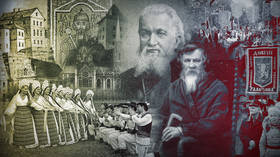
Read more
Ukraine’s conservative forces – landlords, wealthy peasants, officials, and officers of the old regime – became the mainstay of the hetman monarchy. Nikita Shapoval, a Ukrainian politician of the time, wrote, “The hetman’s coup put two forces against each other: the Russian-Jewish bourgeoisie, landlords, and kulaks [wealthy peasants] against the mass of Ukrainian peasant-workers. In other words, it was the foreign city against the Ukrainian village.”
Ignoring the needs of Ukrainian peasants would soon prove fatal for the hetman but, at the time, his actions were justified and effective. Since the collapse of the monarchy a year earlier, society had become fed up with freedom and wanted to restore law and order.
Skoropadsky managed to stay in power for only eight months, but during this time the situation with crime and banditry had considerably improved, and the operation of the railway, factories, and production facilities was restored. To an innocent onlooker, life may have seemed back to normal.
However, the hetman envisioned his own version of the good old pre-revolutionary times. Having come to power, Skoropadsky canceled all socialist reforms. He prohibited strikes, established a 12-hour workday, and restored large land ownership.
Harsh opposition to social reforms instantly turned the peasantry and the peasant-led socialist parties against the hetman. This was extremely dangerous at the time. Skoropadsky, this “genuine Russian,” could still have relied on Russian officers, the bureaucracy, landlords, and business owners to help him retain power. Yet he chose a different path.
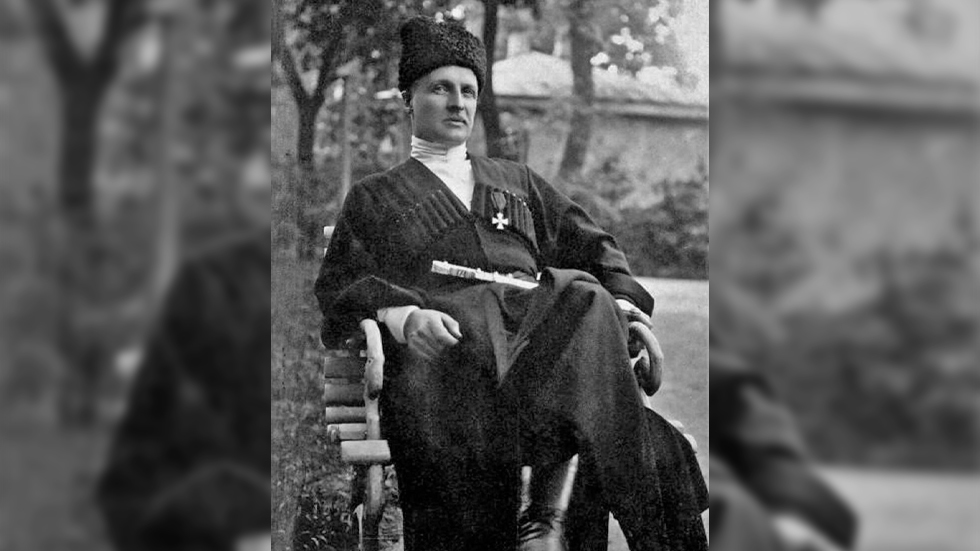
Pavel Skoropadsky © Wikipedia
The national question
Skoropadsky’s rise to power was enthusiastically greeted by the Ukrainian population seeking to preserve unity with Russia. What else could they expect from an officer of the Imperial Guard, an aide-de-camp of the last emperor? But the hetman quickly stopped relying on Russian forces and continued the Ukrainization policy of his predecessors.
Authorities were to speak exclusively in Ukrainian. The same applied to army orders, train station announcements, teaching in schools and universities, and all other forms of public life. Under the hetman, new Ukrainian schools were opened, and two Ukrainian universities were established. The State Ukrainian Archive, the Ukrainian Drama and Opera Theater, the Ukrainian Symphony Orchestra, and the National Academy of Sciences were created. Skoropadsky laid all the foundations for the future of Ukrainian national development.
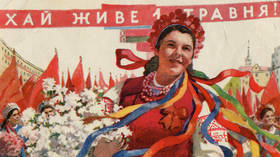
Read more
Skoropadsky went on to restore social classes – an unthinkable idea by early 20th-century standards. The Cossacks were granted special status, the new army uniform replicated the 18th-century Cossack uniform with zupans [long traditional garments] and wide trousers. All this gave off a theatrical air, but it clearly pointed to Skoropadsky’s national and cultural priorities – the Russian imperial heritage was over, and urgent Ukrainization was henceforth a priority.
The hetman’s policy was understandably met with disapproval among Russians who initially saw the hetman as an alternative to the Bolsheviks. Skoropadsky tried to dodge the issue and convince his former colleagues that things weren’t that simple. “You, of course, understand,” General Petr Krasnov recalled Skoropadsky saying, “that I [Skoropadsky], aide-de-camp and chief of his majesty’s suite, cannot be a genuine Ukrainian and talk about a free Ukraine.”
However, the hetman’s words were in stark contrast to his deeds. Tens of thousands of Russian soldiers and officers who initially fled to Ukraine from the atrocities of the Bolsheviks eventually left for volunteer units in the south. Meanwhile, the hetman’s German connections also had a negative impact on the situation.
After four years of bloodshed in the First World War, Skoropadsky’s cooperation with the Germans was highly disapproved of both by the military and civilians – particularly since this “cooperation” was in effect a joint German-Austrian protectorate over the Hetmanate.
In April 1918, Skoropadsky assured Denikin that “he would pursue a completely independent policy” and “hoped to bypass the Germans and make them work in favor of Ukraine.” However, this was said only to attract former imperial generals and officers to his side. Practically, the hetman accepted the hostile foreign influence only to ensure his own power. But even that didn’t help.
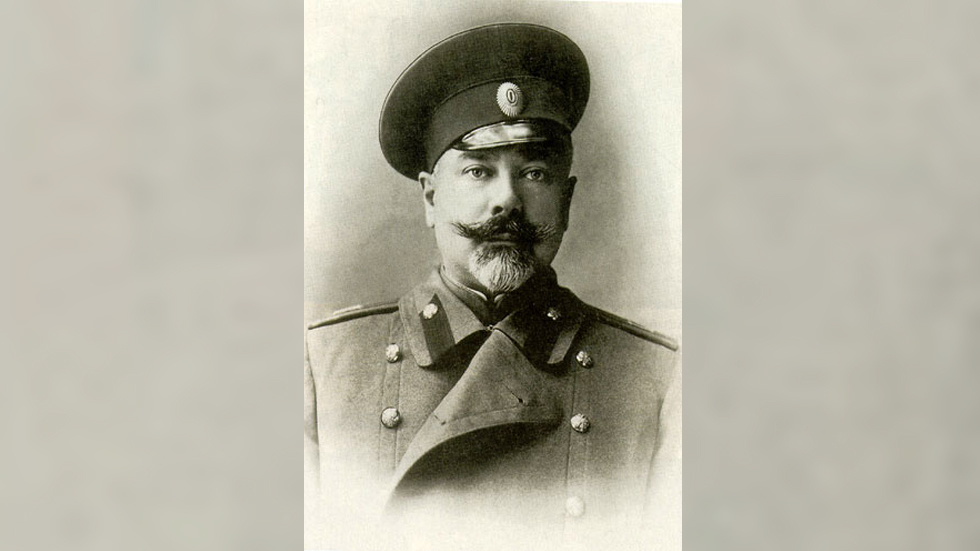
Anton Denikin © Wikipedia
“A foolish and vulgar operetta”
The 300,000-strong German-Austrian army that entered Ukraine in the spring of 1918 certainly wasn’t there to support either the UPR or the hetman. The short-term interests of the military command were simple: they were after Ukrainian food. When the UPR could not arrange the export of products to Germany, it was overthrown and Skoropadsky was put in place as the local authority. However, he did not cope well either.
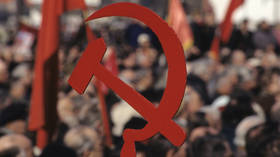
Read more
In the period of March to November 1918, the Germans exported more than 30,000 wagons of bread, products, and raw materials from Ukraine. In revolutionary conditions, this provoked mass peasant uprisings, with 50,000 soldiers from the German, Austrian, and hetman’s armies falling victim. Even the commander of the German occupation forces, General von Eichhorn, was assassinated in the brutal war.
When the Armistice of November 11, 1918 was signed, marking the end of the First World War, German units began leaving Ukraine and returning home. It became clear that the hetman had no one else to rely on. Russian officers and monarchists no longer trusted him, peasants and socialists hated him.
A few days after the end of the First World War, Skoropadsky tried to defect back to the Russians and issued a “Charter on the Federation of Ukraine and Russia,” in which he declared his readiness to defend “the long-standing might and strength of the All-Russian power.” This did not attract significant numbers of Russian officers to his side but completely alienated him from the Ukrainian military and intelligentsia.
The anti-hetman uprising unfolded rapidly. Just a month after the end of the First World War and the collapse of the German Empire, its vassal, the Hetmanate of Skoropadsky, also collapsed. Skoropadsky personally renounced power and fled Ukraine on the heels of the German troops.
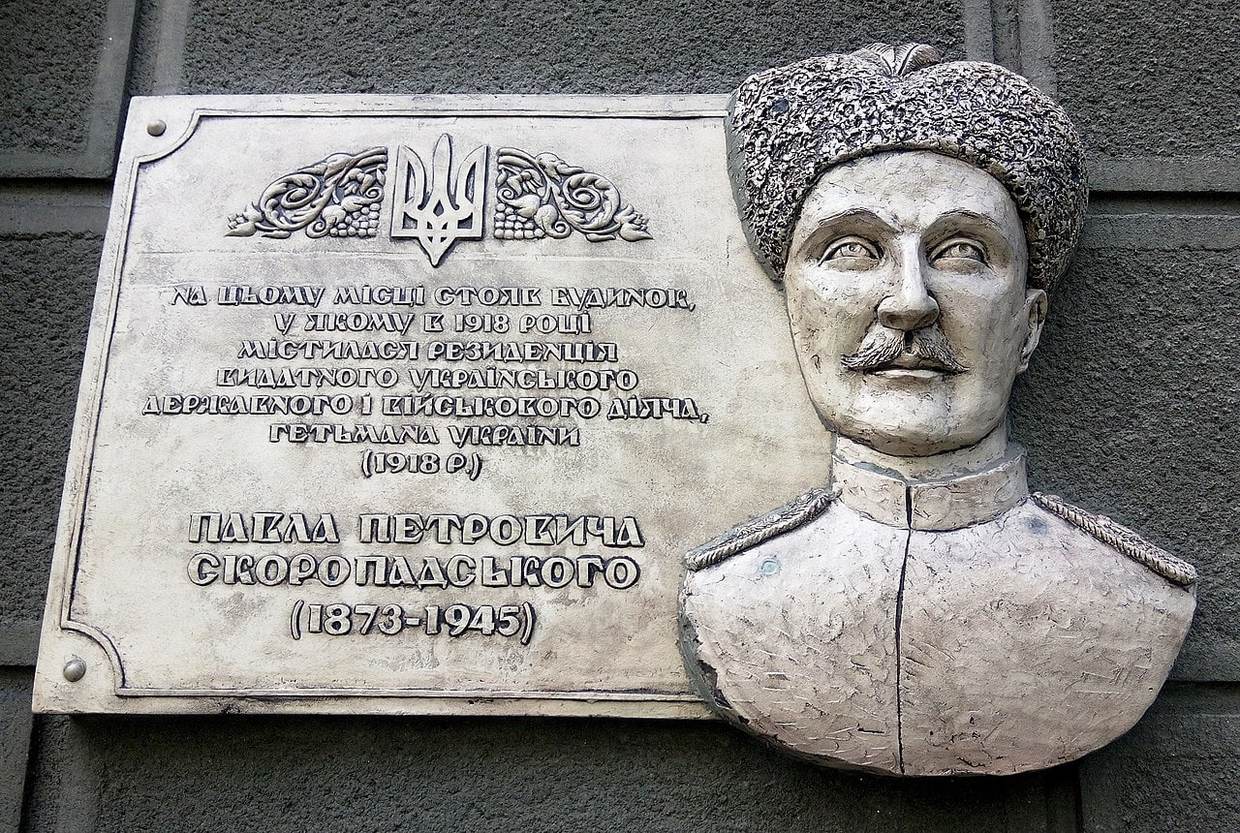
Memorial plaque to Pavel Skoropadsky on 20/8 Institutskaya Street in Kiev, where the Hetman’s residence was located. © Wikipedia
In his own time, Skoropadsky was a frivolous ruler dreaming of past glory. Yet for future generations, he was to become one of the pillars of the Ukrainian movement. Many militants of the Organization of Ukrainian Nationalists came out of his hetman detachments. Skoropadsky petitioned the German command for the release of Stepan Bandera, Andrei Melnik, Yaroslav Stetsk, and other leaders of Ukrainian nationalists from concentration camps. Ukrainian intellectual circles were formed around the hetman, and the Ukrainian Scientific Institute was established in Berlin. Skoropadsky became one of the patriarchs of the Ukrainian movement in the 20th century.
At the same time, his indecisive tossing between Russians and Germans, between unity with Russia and the construction of a Ukrainian national power, between the distant splendor of the old empire, and playing dress-up as a cossack, brought more than just an ironic smile to the face of his contemporaries. All these events delayed and aggravated the situation in Ukraine, plunging it and the whole of Russia into the bloodbath of civil war.
Bulgakov gave perhaps the most succinct and exhaustive description of Skoropadsky’s Hetmanate in his famous novel ‘The White Guard’, identifying it as a “foolish and vulgar operetta.”
By Michael Novikov, a Russian journalist focusing on the Post-Soviet states




